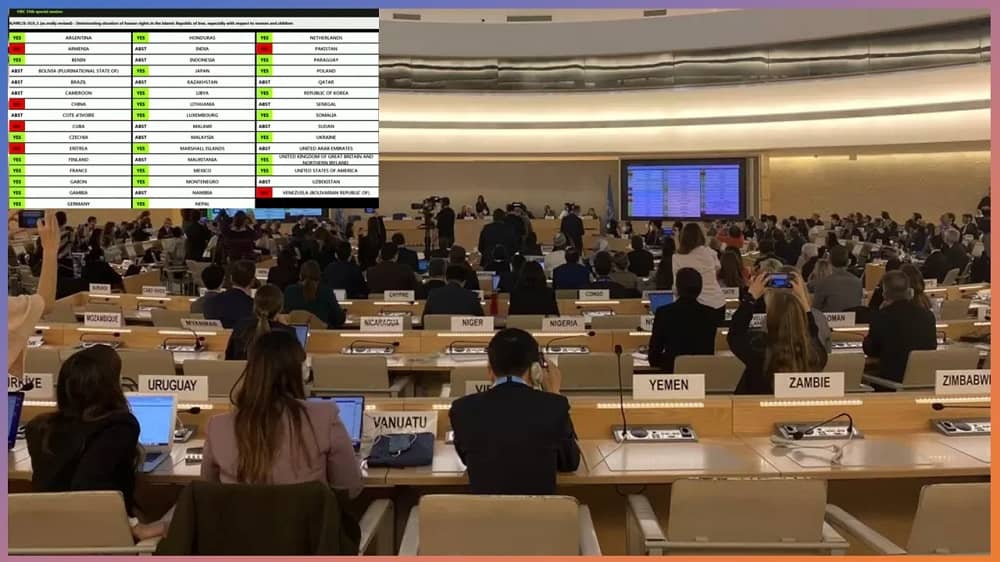
Geneva—November 24, 2022: The UN Human Rights Council on Thursday, November 24, voted to establish a new investigative mission to probe Iran’s suppression of mass protests that have roiled the country since September.
It is worth mentioning that The 35th special session of the Human Rights Council was held following an official request submitted on November 11 by Germany and Iceland, as well as the support from over 40 other states.
In this special session, Mr. Volker Türk the UN High Commissioner for Human Rights
criticized the killing of protesters and the lack of accountability for the perpetrators of atrocities against the people as part of the crackdown on dissent.
Mr. Türk expressed concerns over the “unnecessary and disproportionate” use of force against protesters and the high number of arrests, as well as the death sentences handed to protesters.
He also said: “The security forces… have used live ammunition, birdshot, and other metal pellets, tear gas and batons”.
Mrs. Maryam Rajavi, the NCRI, welcomed the formation of the Fact-finding Commission and called for an inspection of the secret and known prisons of the mullahs’ regime.
The Secretariat of the National Council of Resistance of Iran issued a statement in this regard.
The full text of the statement is as follows:
Mrs. Maryam Rajavi, the President-elect of the National Council of Resistance of Iran (NCRI), welcomed the formation of an international fact-finding commission to investigate the crimes of the mullahs’ regime. It is necessary to inspect the known and secret prisons of the religious fascism ruling Iran, especially the prisons of the Ministry of Intelligence and the State Security Force, she added.
The Iranian Resistance has underscored this imperative for the past four decades, but the policy of appeasement towards the clerical regime has prevented it from taking place. Mrs. Rajavi reiterated that the fact-finding commission should also consider the massacre of political prisoners.
The NCRI President-elect added that the absolute affirmative vote for the formation of this commission by the member countries of the United Nations Human Rights Council points to an international consensus against the clerical regime. This necessary step in dealing with crimes against humanity must be completed by taking the next step, i.e., referring the dossier to the United Nations Security Council.
For the past four decades, the mullahs’ regime has committed crimes against humanity, war, and genocide, including the massacre of the people of Kurdistan, the mass executions of the 1980s, the massacre of political prisoners in 1988, the killings of the Mojahedin members in camps Ashraf and Liberty in Iraq, interference in other country’s affairs and the massacre of the people of Iraq and Syria and other countries, and the massacre of 1,500 unarmed protesters in November 2019. The perpetrators of these crimes must be brought to justice.
The current leaders of the regime, including the supreme leader Ali Khamenei, President Ebrahim Raisi, Judiciary Chief Gholam-Hossein Mohseni Eje’i, and Parliament Speaker Mohammad-Bagher Ghalibaf, who are involved in suppressing the recent uprising, have all been directly involved in the aforementioned atrocities since the 1980s. The Security Council must undertake the necessary arrangements for their trial, Mrs. Rajavi stressed.